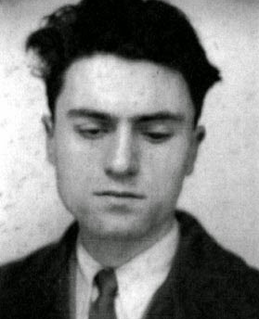A Quote by Michel de Montaigne
I see several animals that live so entire and perfect a life, some without sight, others without hearing: who knows whether to us also one, two, or three, or many other senses, may not be wanting?
Related Quotes
We may live without poetry, music and art; We may live without conscience, and live without heart; We may live without friends; we may live without books; But civilized man cannot live without cooks. . . . He may live without books,-what is knowledge but grieving? He may live without hope,-what is hope but deceiving? He may live without love,-what is passion but pining? But where is the man that can live without dining?
A person is alive only to the degree that he or she is aware. To make the most of life we must constantly strive to be aware of the importance of being aware. Be aware of your senses and use them: So often we are distracted and unconscious of the riches our senses can pour into our lives. We eat food without tasting it, listen to music without hearing it, smell without experiencing the pungency of odors and the delicacy of perfumes, touch without feeling the grain or texture, and see without appreciating the beauty around us.
People often say that blindness sharpens hearing, but I don't think this is so. My ears were hearing no better, but I was making better use of them. Sight is a miraculous instrument offering us all the riches of physical life. But we get nothing in this world without paying for it, and in return for all the benefits that sight brings we are forced to give up others whose existence we don't even suspect. These were the gifts I received in such abundance.
I do not see any reason why animals should be slaughtered to serve as human diet when there are so many substitutes. After all, man can live without meat. It is only some carnivorous animals that have to subsist on flesh. Killing animals for sport, for pleasure, for adventures, and for hides and furs is a phenomenon which is at once disgusting and distressing. There is no justification in indulging in such acts of brutality . . . Life is as dear to a mute creature as it is to a man. Just as one wants happiness and fears pain, just as one wants to live and not to die, so do other creatures.
All men naturally desire knowledge. An indication of this is our esteem for the senses; for apart from their use we esteem them for their own sake, and most of all the sense of sight. Not only with a view to action, but even when no action is contemplated, we prefer sight, generally speaking, to all the other senses. The reason of this is that of all the senses sight best helps us to know things, and reveals many distinctions.
Many people do not know that they can strengthen or diminish the life around them. The way we live day to day simply may not reflect back to us our power to influence life or the web of relationships that connects us. Life responds to us anyway. We all have the power to affect others. We may affect those we know and those we do not even know at all. . . . Without our knowing, we may influence the lives of others in very simple ways.
The perfect family doesn't exist, nor is there a perfect husband or a perfect wife, and let's not talk about the perfect mother-in-law! It's just us sinners. A healthy family life requires frequent use of three phrases: "May I? Thank you, and I'm sorry" and "never, never, never end the day without making peace."
Plants, again, inasmuch as they are without locomotion, present no great variety in their heterogeneous pacts. For, when the functions are but few, few also are the organs required to effect them. ... Animals, however, that not only live but perceive, present a great multiformity of pacts, and this diversity is greater in some animals than in others, being most varied in those to whose share has fallen not mere life but life of high degree. Now such an animal is man.
Let us imagine a number of men in chains and all condemned to death, where some are killed each day in the sight of the others, and those who remain see their own fate in that of their fellows and wait their turn, looking at each other sorrowfully and without hope. It is an image of the condition of man.




































